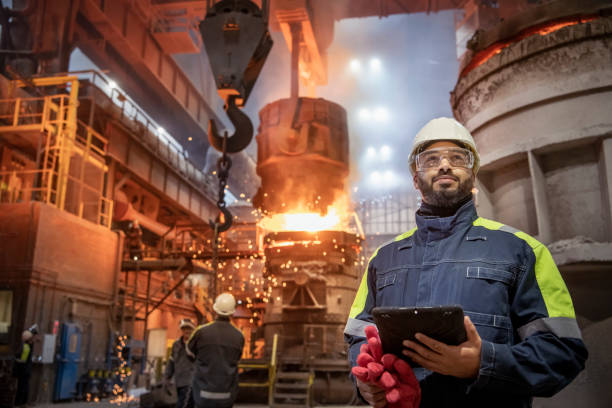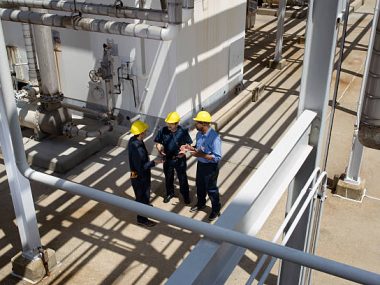How many jobs are available in steel/iron ore? The steel and iron ore industry plays a vital role in the global economy, providing essential materials for various sectors such as construction, automotive, and manufacturing.
As these industries continue to expand, one crucial question arises: How many jobs are available in the steel/iron ore sector?
Understanding the employment opportunities within this industry is crucial for individuals seeking careers in mining, extraction, processing, and manufacturing related to steel and iron ore.
The availability of jobs in the steel/iron ore sector is influenced by a multitude of factors, including market demand, technological advancements, government policies, and regional variances.
This article aims to shed light on the job landscape within the steel/iron ore industry.
Whether you are an aspiring professional, a career changer, or simply curious about the job prospects in this sector, this article will provide a comprehensive overview to help you navigate the world of steel/iron ore employment.
Also Read:
How Many Jobs Are Available in Hospital/Nursing Management?
How Many Jobs Are Available in Auto Manufacturing?
How Many Jobs Are Available in Steel/Iron Ore?
The steel and iron ore industry is a significant contributor to employment opportunities worldwide.
However, the number of jobs available in this sector varies depending on several factors, including market demand, technological advancements, government policies, and regional dynamics.
The extraction and mining of iron ore, which is the primary raw material for steel production, require a substantial workforce.
These operations involve tasks such as drilling, blasting, excavation, and transportation, creating job opportunities for miners, geologists, engineers, and heavy equipment operators.
Once the iron ore is extracted, it undergoes various processes, including crushing, screening, and beneficiation, before being transformed into steel.
This transformation process involves additional employment opportunities in industries such as steel manufacturing, where workers are needed for activities like smelting, casting, rolling, and finishing.
The overall availability of jobs in the steel/iron ore sector is influenced by global and regional market demand for steel products.
Economic growth, infrastructure development, and construction projects significantly impact the demand for steel, thereby affecting job prospects in the industry.
Additionally, government policies related to trade, mining regulations, and environmental standards can also influence job availability.
It is worth noting that technological advancements and automation have introduced new efficiencies in steel and iron ore production, leading to increased productivity and reduced labor requirements in certain areas.
While automation may impact some traditional jobs, it also creates opportunities for skilled workers in areas such as robotics, data analysis, and maintenance of advanced machinery.
Regional dynamics play a role in determining job availability as well.
Countries rich in iron ore reserves and those with a strong steel manufacturing sector tend to offer more employment opportunities within the industry.
Overall, the steel and iron ore industry provides a significant number of jobs globally, ranging from mining and extraction to steel manufacturing and related processes.
The availability of jobs in this sector is influenced by market demand, technological advancements, government policies, and regional factors.
While automation and technological advancements may alter the traditional job landscape, they also create new roles that require specialized skills.
Ultimately, the steel and iron ore industry continues to offer a wide range of employment opportunities for individuals looking to pursue careers in this vital sector.
Skills and Qualifications Required for Steel/Iron Ore Jobs
Steel and iron ore jobs require a specific set of skills and qualifications.
In the mining and extraction phase, qualifications such as a degree in geology or mining engineering are valuable, along with knowledge of drilling techniques, safety protocols, and heavy equipment operation.
For steel manufacturing, skills in metallurgy, engineering, and operations management are essential.
Proficiency in operating machinery, understanding of quality control processes, and knowledge of steel production techniques are also crucial.
Additionally, strong problem-solving, analytical, and teamwork skills are highly valued in the steel/iron ore industry.
Ongoing training and certifications related to safety, environmental regulations, and industry-specific technologies are beneficial for career advancement.
Growth Prospects and Future Job Outlook in the Steel/Iron Ore Sector
The steel/iron ore sector presents promising growth prospects and a positive job outlook for the future.
As global economies continue to expand, the demand for steel in infrastructure development, manufacturing, and construction is expected to rise.
This increased demand will drive investments in steel production and, consequently, create job opportunities in mining, extraction, processing, and manufacturing.
Moreover, the focus on sustainable development and renewable energy infrastructure will require steel for projects such as wind turbines and electric vehicles, further contributing to job growth.
While automation may impact certain traditional roles, technological advancements also create new job opportunities in areas such as robotics, data analysis, and advanced manufacturing.
Challenges and Opportunities in the Steel/Iron Ore Job Market
The steel/iron ore job market presents both challenges and opportunities. One challenge is the potential impact of automation and technological advancements, which could lead to a reduction in certain traditional jobs.
However, this also opens up opportunities for skilled workers in areas such as robotics, data analysis, and maintenance of advanced machinery.
Additionally, fluctuations in global demand for steel and iron ore can affect job stability.
However, the industry’s growth prospects and the increasing emphasis on sustainable development offer opportunities for employment in areas like renewable energy infrastructure and eco-friendly steel production.
Adapting to technological changes, upskilling, and embracing sustainable practices can help individuals navigate the challenges and seize the opportunities in the steel/iron ore job market.
Also Read:
How Many Jobs Are Available in Home Furnishings?
How Many Jobs Are Available in Military/Government/Technical?
Conclusion
The steel/iron ore industry provides a substantial number of jobs globally, encompassing mining, extraction, processing, and steel manufacturing.
The availability of jobs in this sector is influenced by market demand, technological advancements, government policies, and regional dynamics.
While automation and technological advancements may impact some traditional jobs, they also create opportunities for skilled workers in areas such as robotics and data analysis.
The industry’s growth prospects, driven by infrastructure development and sustainable initiatives, offer promising job opportunities.
To thrive in this evolving job market, individuals should focus on acquiring relevant skills, staying updated with industry trends, and embracing new technologies to secure rewarding careers in the steel/iron ore sector.






